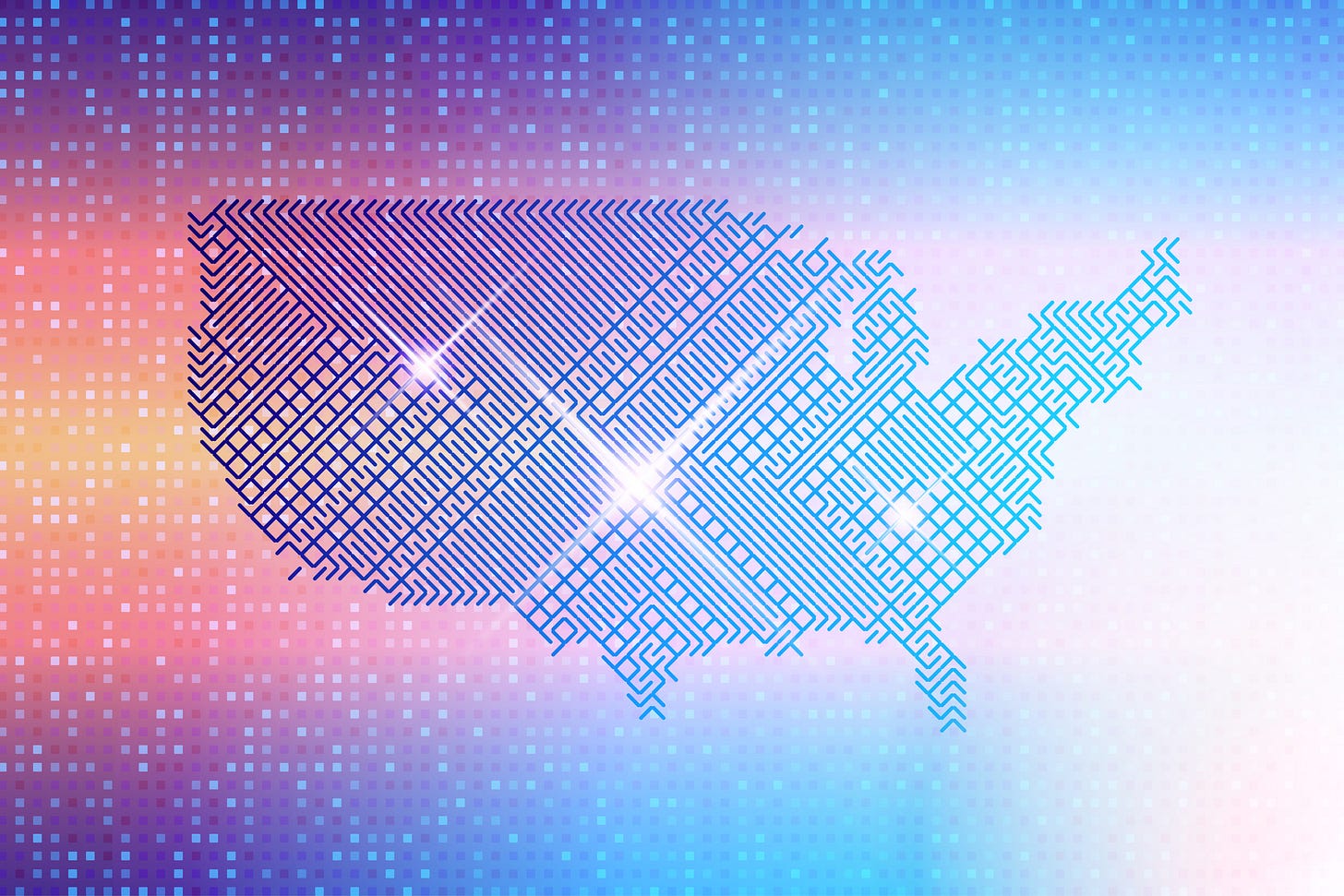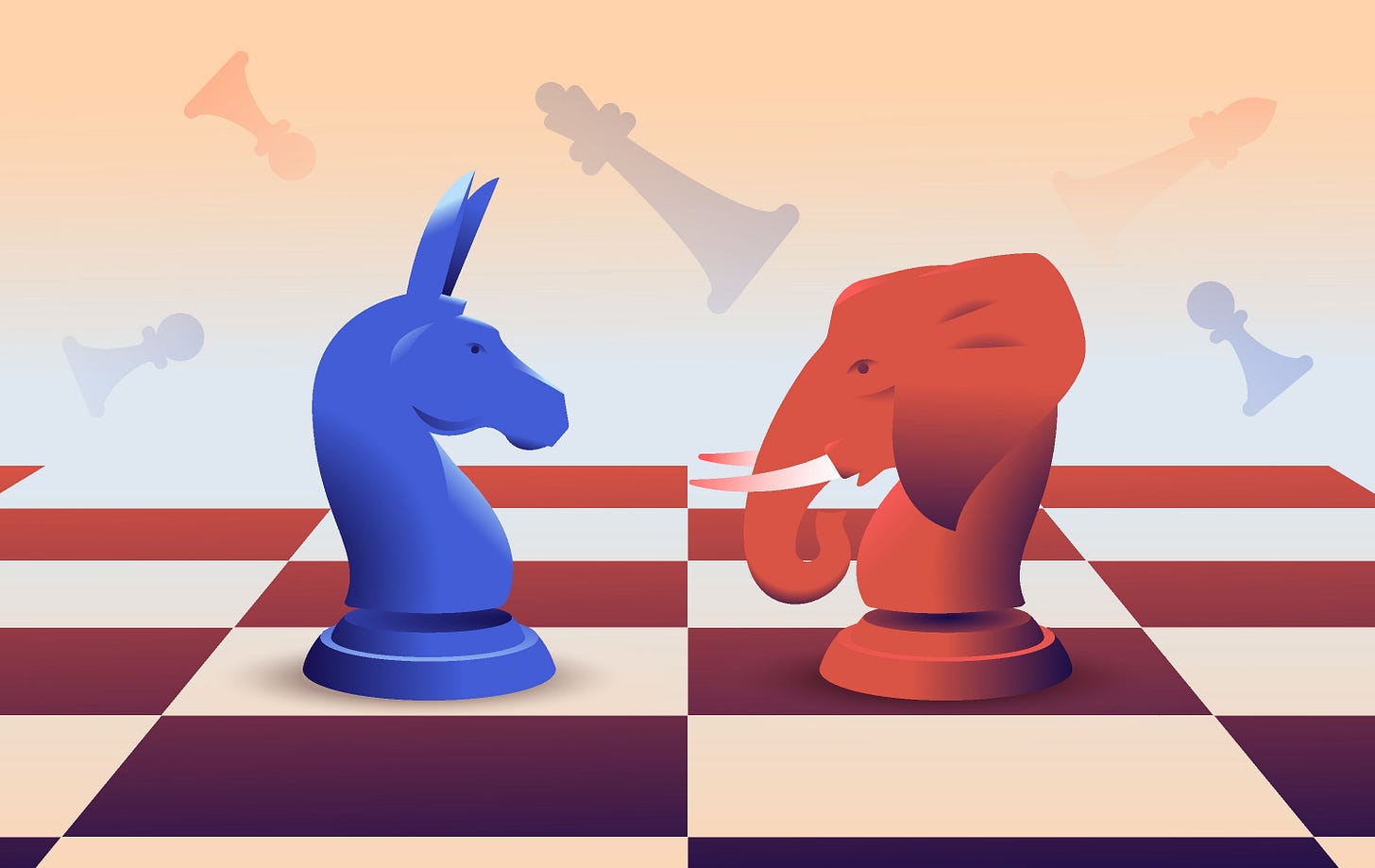#318—Bitcoin is Manifest Destiny for the 21st century
According to MicroStrategy’s Michael Saylor
Welcome to Yaka Stuff, our weekly newsletter that covers news, industry perspectives, and updates from the Hard Yaka ecosystem. Check out our last report here.
This week:
Bitcoin is Manifest Destiny for the 21st century
How Wall Street titans have evolved their thinking around Bitcoin (or not)
Greg Kidd on the TGV Podcast 12/19 (registration closes today)
Stuff happens
1. Bitcoin is Manifest Destiny for the 21st century
Last month, Michael Saylor gave an illuminating talk at Cantor Fitzgerland (the firm that manages Tether’s reserves) following the U.S. election.
Topics ranged from Bitcoin’s position as the best asset for wealth preservation, the financial engineering (and innovation) underpinning MicroStrategy as what is essentially a Bitcoin treasury, and the factors that fueled the election result as well as the implications of Trump’s victory.
But what was perhaps his most compelling theme was the idea that a U.S. strategic bitcoin reserve represented Manifest Destiny for the 21st century.
There’s plenty of historical nuance in the context of Manifest Destiny—for instance, the displacement of indigenous people, the expansion of slavery in new states, and war with Mexico—but the concept is generally associated with the territorial expansion of America, which was turbocharged by the Louisiana Purchase in 1803 and culminated with the acquisition of Alaska from Russia in 1867.
It’s that age of manifest destiny that created the U.S. on the map as we know it today—”from sea to shining sea.”
As Saylor highlights, these deals worked out pretty well for the country.
For Saylor, the 21st century analog of this type of national strategic expansion is the blockchain.
Here’s Saylor on why the U.S. needs to establish a strategic Bitcoin reserve:
Why should it happen? Well, first of all, it establishes a fair, equitable and peaceful system to resolve political differences. We know that Donald Trump's in favor of ending endless wars. It's better to have a business outcome than a military outcome to solve problems. Go back and this supports prosperity and will usher in a Pax Americana in the 21st century.
This establishes Pax Americana. This is a chance to own the 21st century like the U.S. can own it. You address the deficit with an innovative economic idea and an innovative technical idea. You you extract trillions of dollars of capital from the 20th century, physical and financial economy. But as the money flows out of physical and financial assets, it flows into Bitcoin.
And the United States can own all the Bitcoin. So the United States is the beneficiary of the passage from the 20th to the 21st century, all in the 21st century. This is where all the money is going. You might as well buy it before it gets there. This cements the US dollar as the world's reserve currency, and it also establishes a world reserve capital network that the US also owns and controls.
Right. The best way to protect the dollar is make sure that we retire the debt and we become rich. The next best way to protect the dollar is to make sure that if anybody ever considers a different capital asset other than the Treasury bill, you own it. Well, there's only two capital assets that make any sense. The 20th century asset was the Treasury bill.
The 21st century asset is Bitcoin. If you own both of them, you can't lose. You can only win. Any movement away from Treasuries is going to go toward Bitcoin. The obvious thing to do is just buy it before everybody gets there. They either won't go and you won't matter or they will go and you will be. You'll be a beneficiary then to the other geopolitical brilliance of this is that you're attracting foreign capital to the US from our enemies.
To Saylor’s point, there’s a huge first mover advantage.
Check out his full talk.
And stay tuned for a new podcast episode on December 18th featuring Hard Yaka co-founder and CEO Greg Kidd reacting to Saylor’s talk.
2. How Wall Street titans have evolved their thinking around Bitcoin (or not)
Here’s the WSJ:
JPMorgan Chase CEO Jamie Dimon, who called the token a fraud in 2017, has maintained personal skepticism even as his bank has agreed to facilitate trading in ETFs that hold bitcoin. More recently, he called bitcoin a useless “pet rock.”
BlackRock CEO Larry Fink, who was once a proud skeptic of bitcoin, changed his opinion and has described it as a legitimate asset.
Citadel chief Ken Griffin called his prior dismissal of bitcoin “a mistake,” but says he still questions the economic utility of the virtual currency.
Berkshire Hathaway’s Warren Buffett has been a longstanding critic of bitcoin—and doesn’t appear to have budged.
Bridgewater Associates founder Ray Dalio, who dismissed bitcoin as “a speculative bubble” in 2017, changed his tune and called it “one hell of an invention” in 2021.
3. Greg Kidd on the TGV Podcast on 12/19
Greg Kidd will be chatting with TGV founder Dušan Stojanović this Thursday at 10am ET to discuss the impact of the U.S. election as well as what’s next for digital asset innovation.
There’s only 100 virtual seats available and the deadline for registration is today (12/16).
You can register here before it’s too late!
4. Stuff happens
Ethena's USDe Flips DAI to Become Third-largest Stablecoin - "The Defiant"
Ripple Secures NYDFS Approval for RLUSD Stablecoin, Aiming for $2 Trillion Market Cap by 2028
Stablecoins 101: Behind crypto’s most popular asset - Chainalysis
Via Chris Lewis—Gen Extends its Financial Wellness Offerings with the Acquisition of MoneyLion
El Salvador plans Bitcoin policy changes to secure $1.3B IMF loan — FT
Apple Pay finally has an alternative on the iPhone, and it’s a big deal
Elon Musk pal David Sacks will be Trump's AI and crypto czar







